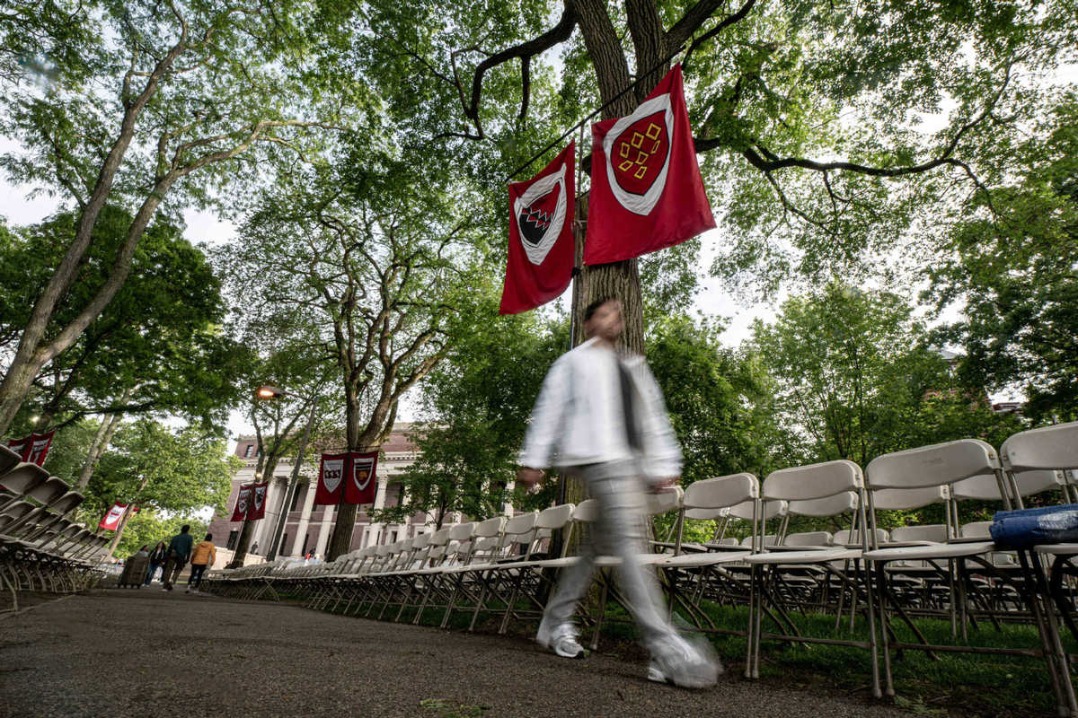US urged to take actions to stabilize ties
By Zhao Jia | China Daily | Updated: 2024-12-04 08:12
Beijing urged Washington on Tuesday to take more actions conducive to stabilizing bilateral ties, and expressed the hope that the new United States government will make a good start in China-US interactions over the next four years.
Foreign Minister Wang Yi made the remarks as he met in Beijing with President and CEO of the National Committee on American Foreign Policy Susan Elliott and her delegation. The NCAFP is a US nonprofit, nonpartisan activist organization.
As the US government is in a transitional period, Wang said the direction of bilateral ties depends on the choice of the US and requires efforts from both sides.
The meeting came after the US announced on Saturday its approval of the latest arms sales worth $385 million to China's Taiwan region, and two days later introduced fresh curbs on the sale of two-dozen types of semiconductor-making equipment and restrictions on numerous Chinese companies' access to US technology.
During the talks, Wang reiterated resolute opposition to US arms sales to the island and the expansion of illegal unilateral sanctions, calling on the US to have a correct strategic perception toward China.
He emphasized that Beijing has no intention of challenging or replacing Washington, while the US should not fall into the misconception of outcompeting China.
China's development and revitalization have a clear historical logic and strong endogenous driving force, which constitute an unstoppable and inevitable trend, he said.
On the Taiwan question, Wang said it is China's internal affair and reaffirmed China's determination to uphold its sovereignty and territorial integrity.
He called on the US to adhere to the commitment to the one-China policy and respect the development path chosen by the Chinese people and their legitimate right to development.
He also underlined the importance of communication and dialogue, saying that dialogue may not solve all problems, but it helps enhance understanding, avoid misjudgments and promote cooperation.
He added that China will continue to facilitate and support the exchange of personnel between the two countries, welcoming more individuals from various sectors in the US to visit the country.
China will remain committed to improving and developing bilateral ties in accordance with the principles of mutual respect, peaceful coexistence and win-win cooperation, regardless of changes within the US, Wang said.
The three principles align with the practical needs of the two countries' relationship, the trends of the times, and the common expectations of the international community, he added.
Wang mentioned that during the China-US summit held in Lima, Peru, last month, President Xi Jinping put forward seven experiences and inspirations drawn from the journey of bilateral ties over the past four years.
Xi emphasized that China's goal of stable, healthy and sustainable Sino-US ties remains unchanged; its commitment to mutual respect, peaceful coexistence and win-win cooperation as principles for handling bilateral ties remains unchanged; its position of resolutely safeguarding sovereignty, security and development interests remains unchanged; and its desire to carry forward the traditional friendship between the Chinese and American peoples remains unchanged.
Those not only represent an authoritative interpretation of China's policy toward the US, but also reflect expectations for future bilateral relations, Wang said.
A news release quoted the US side as saying that as the US government is in a period of transition, it is hoped that both sides will maintain effective communication, continue strategic dialogues and enhance cultural exchanges, as stabilizing bilateral ties is crucial for both countries and the world.
The committee is willing to play a bridging role as always and make efforts to promote the development of US-China relations in a positive direction, the release said.
























